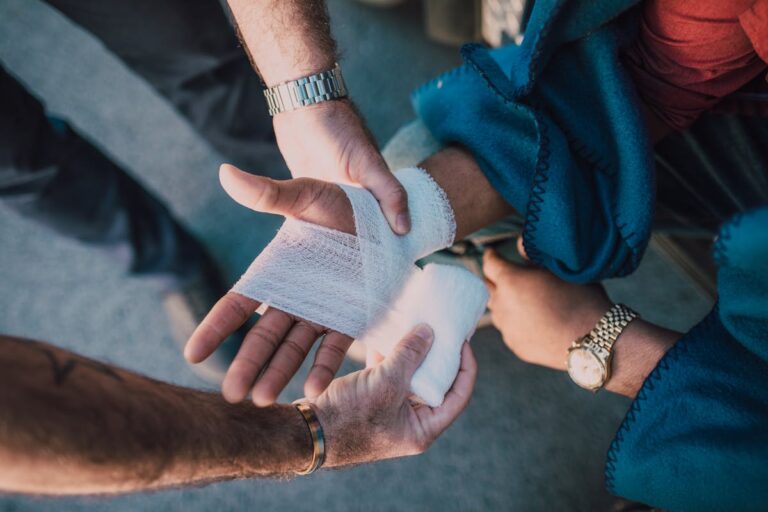Ascertaining compensation following an accident can often be a complex process, riddled with intricate legalities and a multitude of variables to take into account. In such scenarios, grasping your legal rights, understanding the nuances of your case, and strategically steering the course of action are quintessential. However, the question arises – how can you guarantee that justice is rightfully served and that you’re adequately compensated for your damages? This conversation aims to shed light on the practical steps and legal strategies that could potentially maximize your accident compensation.
Understanding Your Legal Rights
How well do you understand your legal rights following an accident? Many individuals are unaware of their legal entitlements, often leading to unjust compensation outcomes. Rights awareness is essential; it equips you with the knowledge necessary to navigate the complex legal landscape that follows an accident. Understanding your rights is not only about knowing what you’re entitled to, but also about evaluating the strength of your claim, and formulating a strategic approach to secure maximum compensation. It involves understanding the liability of the parties involved, the extent of the damages incurred, and the legal deadlines for filing claims. By improving your awareness of your rights, you empower yourself to advocate effectively for the compensation you deserve.
Documenting the Accident
The meticulous documentation of an accident is an essential step in securing adequate compensation. It serves as a valuable tool in establishing the facts, circumstances, and extent of damages incurred. This process involves two key components: witness statements and photographic evidence. Witness statements offer a third-party perspective, providing an extensive account of the incident. Their unbiased testimonies can fortify your claims and may even reveal overlooked details. Additionally, photographic evidence vividly illustrates the accident scene, capturing damage to property, skid marks, or other decisive elements. This form of evidence is potent and irrefutable, often speaking louder than words. As a result, be as thorough as possible in documenting the accident, as this can greatly impact your compensation claim’s success.
Seeking Immediate Medical Attention
Undeniably, seeking immediate medical attention after an accident is a vital step in the process of securing compensation. Not only does emergency care guarantee your well-being, but it also provides essential evidence of the harm sustained. Medical professionals meticulously document your injuries, treatments, and prognosis, which can substantiate your claim. Furthermore, delaying treatment might be interpreted as evidence that your injuries are not severe, potentially undermining your claim. Additionally, follow-up treatment is equally important. Consistent medical visits will demonstrate the ongoing impact of your injuries, further strengthening your case. Hence, in the quest for compensation, prompt and consistent medical attention is not just critical for your health, but also for your justice.
Reporting the Incident to Authorities
While ensuring your health is paramount, documenting the incident with the appropriate authorities is an equally crucial step in securing compensation after an accident. An accident report is an official and thorough record of the event, providing a detailed account of the circumstances, involved parties, and the extent of damage or injuries. Submitting a meticulous police statement is essential, as it plays a critical role in establishing the facts, attributing responsibility, and potentially influencing the outcome of any ensuing legal proceedings or insurance claims. Accuracy and promptness in reporting can greatly influence your chances of obtaining fair compensation. The absence of an official report can potentially undermine your case, making it easier for at-fault parties to contest your claims.
Hiring a Skilled Accident Attorney
Upon successfully reporting the incident to authorities, your next strategic move in securing compensation after an accident should be to enlist the services of a seasoned accident attorney. Attorney qualifications are an essential factor to take into account; their expertise, experience, and specialization in accident cases can greatly influence the outcome of your case. If you’re navigating the legal complexities of seeking justice after an accident, having a knowledgeable legal team by your side can make all the difference. Look for an attorney with a strong track record in handling and winning similar cases. Client testimonials can offer valuable insights into the attorney’s competence and reliability. These testimonials provide real-world evidence of the attorney’s ability to effectively negotiate compensation and deliver justice. In sum, hiring a skilled accident attorney is a fundamental step towards securing rightful compensation and achieving justice after an accident.
Negotiating With Insurance Companies
How does one approach the complex task of negotiating with insurance companies? Understanding insurance tactics is a vital first step. Insurance companies often attempt to minimize payouts, citing various reasons like policy exclusions or disputed liability. Don’t let this deter you. Instead, arm yourself with effective negotiation strategies. Research similar cases to gauge a reasonable compensation range and present a well-documented claim, emphasizing the extent of your injuries and financial losses. Be patient, as negotiations may take time. Remember, the initial offer is rarely the final one; don’t hesitate to counter-offer. Stay calm, composed, and professional throughout the process. Finally, don’t sign any settlement without legal advice. Your fight for justice deserves a fair resolution.

Filing a Personal Injury Claim
Negotiating with insurance companies serves as a vital step in your quest for justice, but it is not the only option available. If settlement negotiations fall short, filing a personal injury claim becomes necessary. This claim process, though potentially intimidating, can be navigated successfully with detailed preparation. First, gather all relevant documentation — medical records, police reports, and incident-related expenses. These strengthen your case by providing tangible evidence of your injuries and related costs. Next, articulate a compelling narrative of the incident, ensuring to highlight the other party’s negligence. This narrative is essential in persuading the court of your rightful demand for compensation. Remember, the goal is not just to file the claim, but to secure a favorable outcome.
Preparing for Court Proceedings
While the thought of court proceedings may seem intimidating, thorough preparation can greatly enhance your chances of success. Understanding courtroom etiquette, such as respectful communication and proper attire, can positively influence the judge’s perception of you. Additionally, a well-organized evidence presentation is essential. This includes medical reports, witness testimonies, and any documentation supporting your claim. Prepare to articulate your case clearly, demonstrating the defendant’s liability and your incurred damages. Rigorously analyzing your evidence can help identify weaknesses in your case, enabling you to address them proactively. Remember, successful court proceedings are not exclusively about the facts, but also about how convincingly and respectfully you present them.
Maximizing Your Compensation Payout
To maximize your compensation payout, a strategic approach is essential. Effective compensation strategies require a thorough examination of all financial documentation associated with the accident. This includes medical bills, loss of income, future treatment costs, and other accident-related expenses. By meticulously analyzing these documents, you can calculate a precise compensation estimate that reflects your true financial needs. Additionally, this detailed approach strengthens your claim, making it more persuasive to insurance adjusters or court authorities. Always remember, an extensive and well-documented financial analysis not only supports your claim but also serves as a potent tool to counter lowball settlement offers. Consequently, to secure the compensation you deserve, refining your financial documentation and compensation strategies is indispensable.
Frequently Asked Questions
What if My Accident Happened in a Different State or Country?
If your accident occurred in another state or country, you may encounter jurisdiction issues. To navigate cross border claims successfully, consult with a legal professional experienced in inter-state or international personal injury law.
Can I Seek Compensation if the Accident Was Partially My Fault?
Yes, you can seek compensation under comparative negligence laws. Fault determination is key; if less than 50% at fault, you may be eligible for partial compensation. Consult a legal professional for precise advice.
How Long Will the Legal Process Take From Start to Finish?
Legal timelines for accident claims can vary considerably, depending on the complexity of the case. Factors include evidence collection, negotiation with insurers, and potential court proceedings. Typically, it could take several months to a few years.
What Can I Do if the Other Party Doesnt Have Insurance?
If the other party lacks insurance, you can pursue uninsured motorist claims. Alternatively, explore other coverage options within your own insurance. Consult a legal professional to evaluate your situation and guide you through the process.
Can I Still Claim Compensation if I Didnt Have Immediate Symptoms After the Accident?
Yes, you can still claim compensation for delayed symptoms after an accident. Thorough accident documentation is essential to support your claim, as it provides evidence of the incident and potential for latent injuries.






